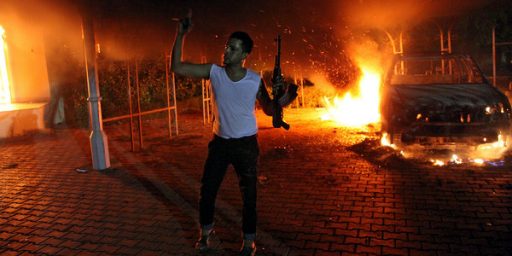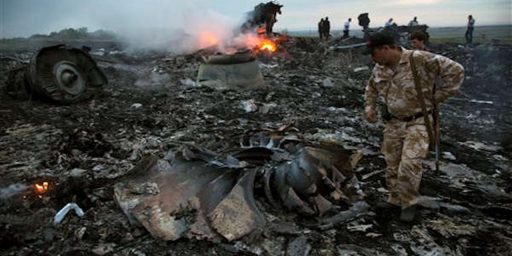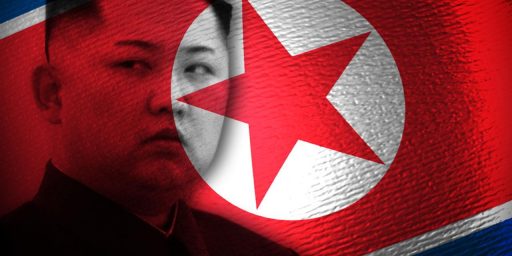Rice On Record
Condoleeza Rice has an op-ed in today’s WaPo, presumably in response to Richard Clarke’s recent allegations.
During the transition, President-elect Bush’s national security team was briefed on the Clinton administration’s efforts to deal with al Qaeda. The seriousness of the threat was well understood by the president and his national security principals. In response to my request for a presidential initiative, the counterterrorism team, which we had held over from the Clinton administration, suggested several ideas, some of which had been around since 1998 but had not been adopted. No al Qaeda plan was turned over to the new administration.
We adopted several of these ideas. We committed more funding to counterterrorism and intelligence efforts. We increased efforts to go after al Qaeda’s finances. We increased American support for anti-terror activities in Uzbekistan.
We pushed hard to arm the Predator unmanned aerial vehicle so we could target terrorists with greater precision. But the Predator was designed to conduct surveillance, not carry weapons. Arming it presented many technical challenges and required extensive testing. Military and intelligence officials agreed that the armed Predator was simply not ready for deployment before the fall of 2001. In any case, the Predator was not a silver bullet that could have destroyed al Qaeda or stopped Sept. 11.
***
Let us be clear. Even their most ardent advocates did not contend that these ideas, even taken together, would have destroyed al Qaeda. We judged that the collection of ideas presented to us were insufficient for the strategy President Bush sought. The president wanted more than a laundry list of ideas simply to contain al Qaeda or “roll back” the threat. Once in office, we quickly began crafting a comprehensive new strategy to “eliminate” the al Qaeda network. The president wanted more than occasional, retaliatory cruise missile strikes. He told me he was “tired of swatting flies.”
This strikes me as plausible. Certainly, we all knew that al Qaeda was a threat. The attacks on the Cole, our embassies, and elsewhere had alerted us to that fact. But until 9/11 most security analysts thought terrorism was mainly a nuisance rather than the primary threat to our security. I was, at the time, teaching international relations at the university level. I had done my Ph.D., from 1992-95, focused on U.S. national security policy. I’d attended at least one major international security conference, populated by academics, military officers, and public policy professionals, every year for a decade. Terrorism was a peripheral concern in that community and, indeed, panels on peacekeeping and missile defense always outdrew terrorism panels by several orders of magnitude. Hindsight is, as they say, 20-20.






I keep hearing Big Media news reports referring to Richard Clarke as having served as Bush’s counterterrorism chief. Bush moved Clarke out of counterterrorism and into cyber-security, which had been Clarke’s obsession pretty much throughout his Clinton service. Apparently even when he was Clinton‘s “counterterrorism” chief, he wasn’t all that concerned with counterterrorism in the real world.
Atrios has an interesting claim/truth comparison. And today, Cheney essentially blamed the successes of terrorists against US targets on the failures of Richard Clarke. Amazing.
I agree that hindsight is 20/20 but the administration seems to think they can change the historical record.
McGehee
Don’t believe the hype. Clarke wasn’t moved to cyber security until after 9-11.
For some reason they want you to believe he was out-of-the-loop. He wasn’t. He just didn’t have enough people interested in the cause.
The problem with the entire 911 controversary is the democrats will never allow themselves to win it. The American people will find their claims (Bush knew, should have done more) extremly implausible unless they can find it in themselves to take an accurate look at the record. If Kerry can say to a public audience that Bush didn’t do enough to fight terrorism before 911 (a common refrain from the left), he also needs to say that Clinton also dropped the ball. Unless he can admit that Clinton had some responsibility in the rise of Al-Qaeda, then his prouncements on national security will fall on deaf ears.